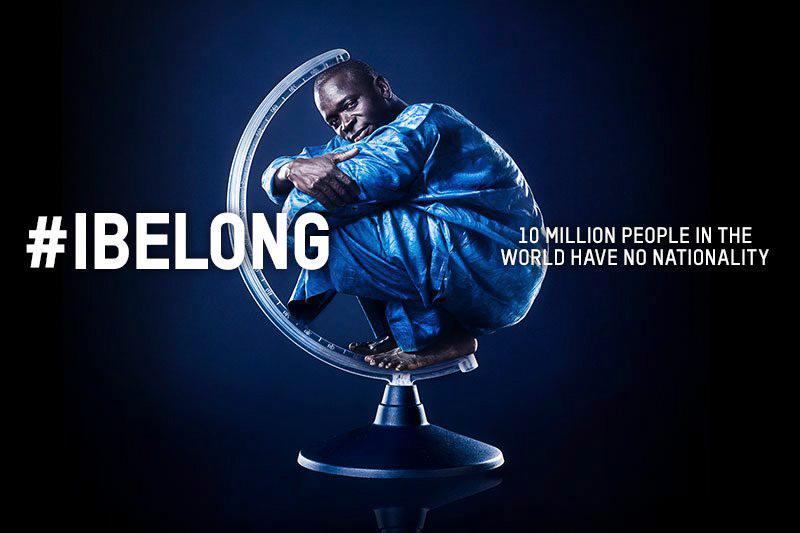
Ministers convene to discuss statelessness in Africa’s Great Lakes region

“I am worried for my children. I have been experiencing this kind of life and I know this life leaves everyone in bitterness, you haven’t fulfilled your dreams… Are they going to remain just like their grandmother and mother?”
Happiness Kapota is from Kenya and like 200,000 others in Africa’s Great Lakes region, she is stateless. Born to stateless parents, who had no citizenship or nationality to pass on to their daughter, this is a status that was assigned to her at birth.
For her whole life Happiness has lived an illegal existence, and she now sees the same pattern being repeated in the lives of her children.
While most children acquire a nationality automatically when they are born, Happiness’ statelessness has been passed down to her children as it was to her. They now face a lifetime of difficulties.
Her children are still in kindergarten, but she worries what she will tell them once they are old enough for preschool. Without the right documents, it is almost impossible for them to attend.
Often, stateless individuals lack travel documents, find it difficult to get a job, and are denied access to healthcare and other state services. In some cases, stateless persons are even denied the right to marry, purchase land and property, or even open a bank account.
People become stateless from an array of complex historical, social and legal reasons, including migration, flawed citizenship laws and discrimination against particular ethnic or religious groups.
“In the Great Lakes region, I would say the main cause of statelessness is the consequences of forced displacement. This is one of the regions in the world where you had the highest number of refugees, people having to flee from their country,” explained Raouf Mazou, Director of UNHCR’s Regional Bureau for Africa.
“Many of these events happened 20 years ago so you have people who find themselves in asylum countries and do not have the citizenship of the countries where they are, who had provided them with asylum initially, but who cannot affirm the citizenship of the county where they came from.”
The Government of Kenya, the UN Refugee Agency (UNHCR) and the International Conference on the Great Lakes Region (ICGLR) gathered this week in Nairobi, Kenya, for a three-day ministerial conference to discuss ways to address the issue of statelessness in the Great Lakes region of Africa.
Alongside ministers and NGO representatives was Kapota and a number of other stateless individuals from the Great Lakes region, representing the stateless community and advocating for their right to be legally recognised.
The conference marks the midway point in the Global Campaign to End Statelessness by 2024. Launched in November 2014, the #IBelong Campaign bands together states, civil society and other UN Agencies, with the aim to end statelessness by resolving existing statelessness, preventing new cases from emerging and better identifying and protecting stateless populations.
Governments in the region claim they are working together to tackle the issue and meet campaign goals to end statelessness.
“There is an acknowledgment of the problem from all countries in the region, and the conference that you see today is a clear indication that countries from the region want to resolve the problem, they acknowledge the problem,” Mazou said.
In Kenya, steps are currently underway to recognise stateless groups and determine how to address the issue of statelessness in the country, Patrick K.Ole Ntutu, the Chief Administrative Secretary for Kenya’s Ministry of Interior, told CGTN.
“The government of Kenya has initiated a Huduma number, like social security, whereby we register all citizens of the republic. And also non-citizens, and also statelessness. So in that form, people can record who they are. Are they a citizen, are they stateless? And that is how we can come up with a procedure on how to deal with the issue of stateless people in Kenya,” he explained.
While the campaign has seen headway being made in the fight against statelessness, millions across the world still remains stateless.
For Happiness Kapota, her hope is that governments fight to ensure all those without citizenship and nationality are recognised and provided the opportunities and hope that comes with the right to belong.
“If we had this documentation, maybe we would have been far in life,” she says. “Since the 1960s, when my grandparents were here, we have not been able to grow… Statelessness is a boost of poverty.”






